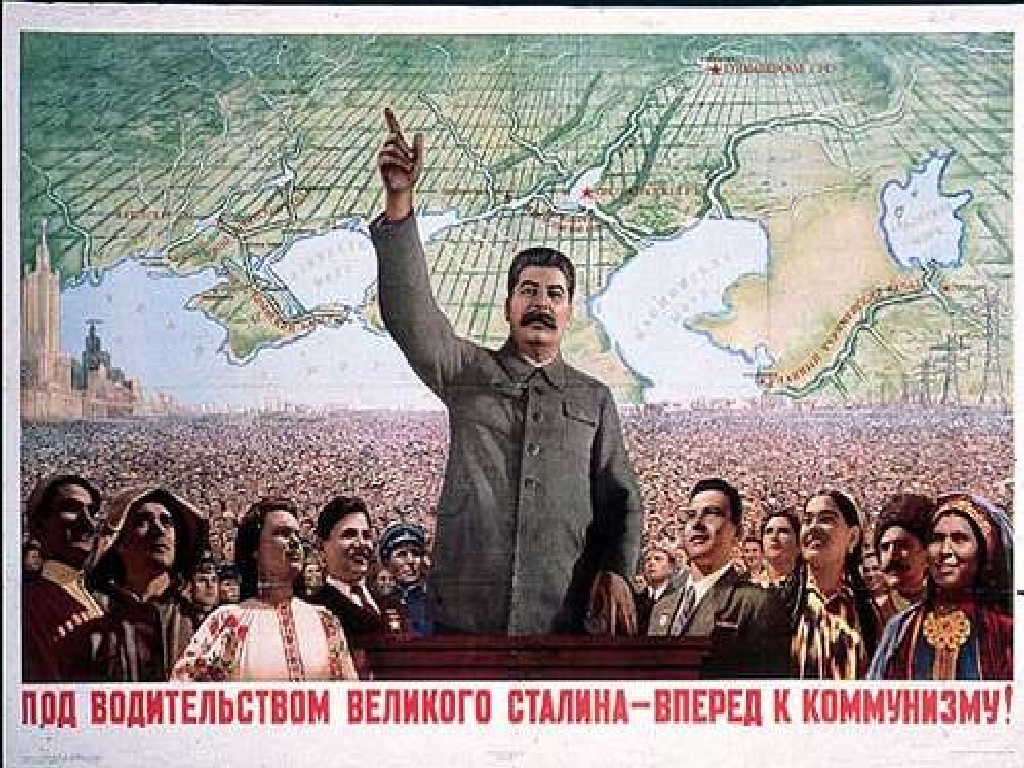When US Secretary of State Rex Tillerson paid his first official visit to Ukraine on 9 July 2017, he met with a small group of Ukrainian civil society activists prior to his meeting with President Poroshenko. The sequence of Tillerson’s conversations in Kyiv was not coincidental. It sent a clear signal: the US government values Ukraine’s civil society’s efforts and urges our leaders to strengthen cooperation with anti-corruption groups and reform activists.
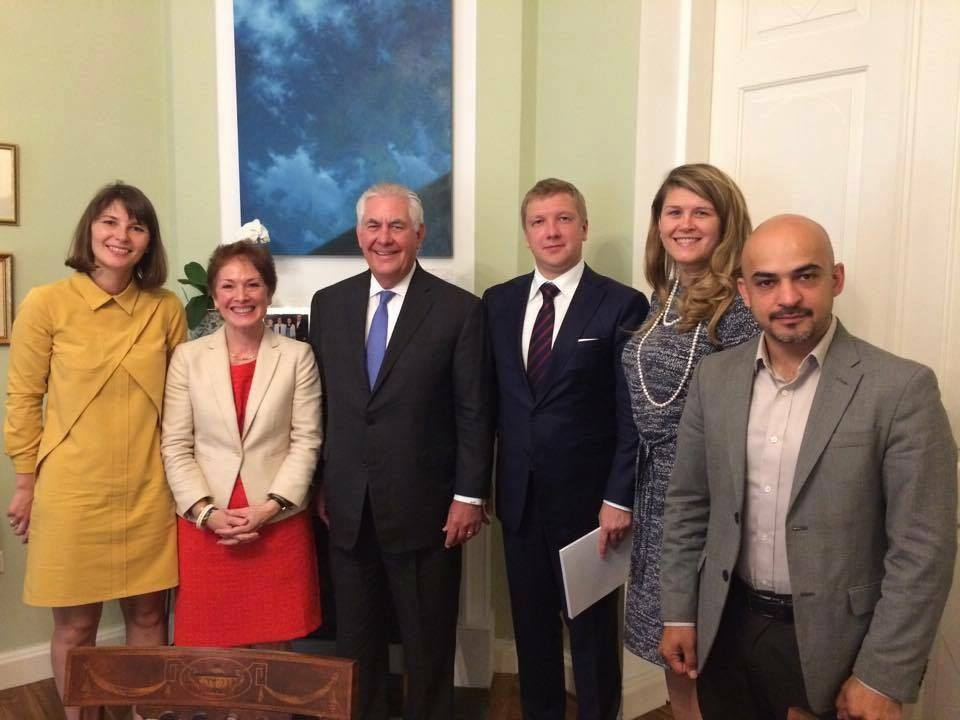
Ukraine’s vibrant civil society played a crucial role in safeguarding its democracy during the Euromaidan. To paraphrase Alexis de Tocqueville, it was the time when Ukrainians of all ages, all conditions, and all dispositions got busy forming associations. However, if Ukrainian society now boasts a new layer of democratic paint, the old oligarchic colors are peeking through in places. Three years after Petro Poroshenko assumed the presidency, the consensus is that a new Ukraine remains out of reach. Numerous experts now warn that a counter-revolution is on the horizon and that Ukraine may slide back to authoritarianism.
Ukraine is at serious risk of following its own footsteps in the failure of its 2004-05 Orange Revolution, when civic activism failed to achieve enduring political changes. There is evidence that today Ukraine’s anti-corruption activists are subject to wiretapping, surveillance, searches, smear campaigns, and even death threats. The state authorities increasingly sideline reformers, while volunteers are fatigued. Ukraine’s society is noticeably returning to political apathy.
What went wrong after the Orange Revolution?

The West hailed the Orange Revolution as a triumph of Ukraine's civil society. In 2007, Freedom House assigned Ukraine, for the first time in its history, a rating of “free” in the categories of political rights and civic liberties.
from 40,000 in 2004 to almost 80,000 by 2014, but this leap of activism did not equate to deeper citizen engagement or political transformations.
The impact of civil society organizations stayed small - just 8-9 percent of them , Kyiv, 2010, p. 18.']were truly active. By 2011, only 29.9% of Ukrainians could name a single NGO in their town or village, while 85.2% had never participated in any voluntary activities. On the eve of Euromaidan, NGO leaders characterized their organizations as “mostly ineffective” in addressing policy issues.
After the Orange Revolution, Ukraine's civil society mistakenly presumed there could be no backsliding to authoritarianism. Activists spent too much time at international conferences instead of town hall meetings. Western donors, not local independent advisory boards, judged NGOs’ effectiveness and impact. The leaders of elitist NGOs, the so-called "NGO-cracy," were busy networking with Western embassies rather than engaging with their fellow citizens. NGOs often failed to cooperate to create cross-regional networks.
As a result, the work of revolution remained unfinished. The lack of vigilance and civil society’s inability to hold the Yushchenko-Tymoshenko government accountable subsequently led to disillusionment with Orange leaders and the victory of revanchist forces in the 2006 parliamentary and 2010 presidential elections.
Civil Society after Euromaidan: what went right?
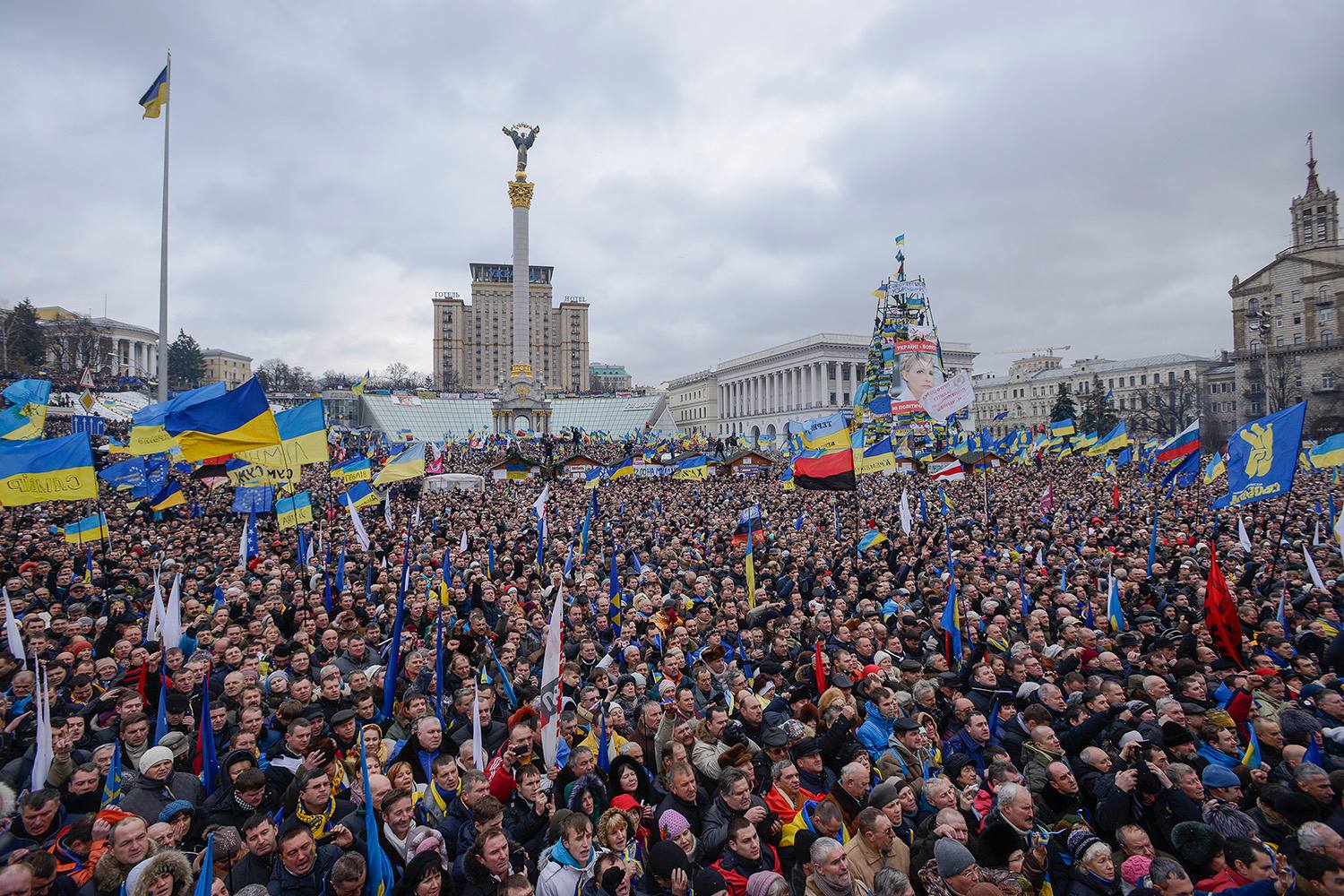
Ukraine paid a high price to restore its democracy in 2013. The scope of innovation and civic engagement at the 2013 Euromadan was truly unprecedented. There are at least four areas where civil society achieved particularly strong results:
- Ukraine experienced a remarkable growth of nationwide volunteer groups that provide humanitarian support and social assistance to the victims of the war in Donbas and other populations at risk. Volunteers became the most trusted group in Ukrainian society (replacing the church).
- Civil society groups influenced the post-Euromaidan reform process. The largest and most visible reform network – the Reanimation Package of Reforms (RPR) – is comprised of 80 NGOs, 22 reform groups and 300 experts, who develop, promote, and in some cases even implement judicial, anticorruption and economic changes.
- Anticorruption initiatives became much more systemic and institutionalized. NGOs continuously monitored the process of constructing two major anticorruption agencies, the National Anti-Corruption Bureau of Ukraine (NABU) and the National Agency for the Prevention of Corruption (NAPC). Under public pressure, the government launched a publicly available online system for tracking the declared assets of politicians, civil servants, and judges.
- Euromaidan ushered in a new type of political organization: membership-based political parties detached from oligarchic funding. These civil society-based political forces, like Democratic Alliance, Power of the People, Civic Movement “Khvylya” (the wave), and Mikheil Saakashvili’s The New Forces Movement, engage well-educated Ukrainians and focus on anti-corruption.
What went wrong (again)?
The human toll of the Euromaidan was so high that most find the current cynical restoration of the old system truly incomprehensible. As Novoe Vremya editor Vitaliy Sych wrote: “I thought that after the killing of 100 people on the Maidan, after the deaths of thousands of people in the East, Ukraine would never be the same, and that politicians would understand the level of responsibility and the importance of the moment. But we still witness corruption, schemes, and political deals at the highest level.” However, the incomprehensible is unfolding before our eyes. Ukraine’s political class once again patiently waited for the revolutionary fervor to pass before starting its “sweet counter-revolution.”
The first warning light for Ukraine’s civil society should have been the “business as usual” approach of Ukraine’s NGO community.
While volunteers emerged as the most trusted group in Ukraine after the Euromaidan, the NGO leaders continued to prioritize relations with Western donors over engaging with its citizens, even the passionate army of volunteers.
Certain NGOs resumed working with Ukraine’s financial elites. Ihor Kolomoisky, Viktor Pinchuk and other oligarchs started employing financial, media, and political resources to promote various activists and NGOs. The oligarchs predicted, correctly, that their support would buy a certain amount of influence and protection. Social scientist Mikhail Minakov observed
, “In 2014…oligarchic groups recognized the functionality of civil society organizations and attempted to use them—sometimes through coercion—either to increase their rents or to defend their existing power and property.”
In many ways the cultural codes of Ukraine’s top NGOs mirror the patron-client nature of the country’s oligarchic power structures: many Kyiv-based NGOs operate in a rather closed network of people who have been friends for a long time, who have a long history of cooperating with one another, and who built clientelistic networks either with government representatives or international donors.
Consider the Reanimation Package of Reforms (RPR) group. Donors rewarded RPR for its effectiveness and success in advocating post-Euromaidan reforms. From 2015-17, it received millions of dollars in support from Ukraine’s key donors: USAID, Pact, the Swedish SIDA, the International Renaissance Foundation (IRF), UNDP, and the EU Delegation to Ukraine. Although RPR is officially comprised of 80 NGOs, all Western funding has been channeled through a select group of NGOs—such as the Center for Democracy and Rule of Law (more than 70 percent of total funding), Centre UA and the Ukrainian Center for Independent Political Research - all of which were already longtime recipients of foreign aid.
The funding flow not only created conflict between recipient and non-recipient groups—it created something of a “warm bath” effect for the recipients. RPR turned its focus on donor reports and applications, rather than sustaining and growing citizen participation. RPR’s office, opened in 2014 with zero donor funding, looked like a beehive of civic activism. Today, the drive is gone and bureaucracy prevails over innovation. When asked what made him most proud of the network, Artem Mirhorodkyi, chief of RPR’s secretariat, responded he was “particularly glad that RPR’s reform bulletins were received and read by all foreign embassies and foreign organizations.”
Over time, results-oriented activists started leaving the network. As Viktor Griza, a former member of RPR’s group on cultural reform, told me: “RPR grew into a club of beneficiaries [vygodopoluchateli]. Many RPR activists only use the RPR ‘brand’ to boost their personal capital – to meet foreign diplomats, get media opportunities, get invited to international conferences, or win prestigious fellowships in the United States. For some, RPR is a ticket to power corridors, where they can make friends with government officials or politicians and maybe get elected to the Verkhovna Rada during the next election.”
The stagnation in Ukraine’s NGO community was matched only by the ambition of many civic leaders to take advantage of their newfound influence. In 2013 Ukraine's activists represented a potent and vigorous force. Authorities were forced to reckon with activist power and cooperate with its leaders on reforms. This opened a window of opportunity for Euromaidan leaders to go into politics, and many took advantage of the opportunity to convert their standing into attractive parliamentary or governmental positions. As a consequence, the leaders on the street failed to form a united political force to run for parliament in 2015. Instead, they allowed the country’s old elites to split their ranks and co-opt them into different political projects.
The Euromaidan spirit was not the only loser in this exchange—the leaders themselves now face the consequences of their actions. According to polling by the International Republican Institute, today even the most active civic leaders remain largely unknown to most Ukrainians: 81 percent of Ukrainians don’t know who Svitlana Zalishchuk is, 58 percent are unfamiliar with Serhii Leshchenko, and 30 percent have never heard of Euromaidan’s hero, Mustafa Nayyem.
Reformers try to increase their visibility online through Facebook, but in a country with low internet penetration, “Facebook democracy” is not the most efficient instrument to attract supporters or mobilize voters in a sustained manner.
The unraveling of the Euromaidan spirit through NGO stagnation and activist ambition helped open the door for Ukraine’s oligarchic economic elites to regain their influence. To win back the revolution, the veterans of Euromaidan, groups and individuals alike, must re-consider their priorities. Even that will not be sufficient: they must offer a clear action plan of reforms.
Winning the Revolution
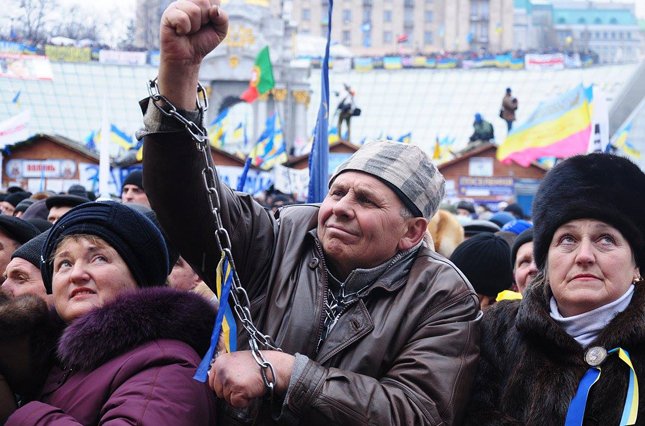
Winning the revolution will take more than winning the Maidan. To win the Maidan, it was sufficient to marshall popular support against the massive corruption of the Yanukovych administration and stand for “European values,” without providing much in the way of specifics. After the new government took power, the effectiveness of anti-corruption as a platform declined. A wave of nationwide anti-corruption forums that Mikheil Saakashvili, the Democratic Alliance party, and other activists organized failed to pay dividends with the electorate. The most recent opinion poll indicates that Democratic Alliance
enjoys only a 0.1 percent popularity rating, while Saakashvili’s New Forces Movement is favored by only 1.4 percent of voters. The prospects for Mikheil Saakashvili’s party are even grimmer after President Poroshenko’s decision to strip the former Georgian president of his Ukrainian citizenship.
The people of Ukraine may know what civil society activists are against, but they are unaware of what they stand for. Do they have a reform plan and a team to implement it effectively? Yanukovych is gone, and the signing of the Ukraine-EU Association Agreement and adoption of the EU visa liberalization regime are achievements largely seen as success stories of Poroshenko’s presidency. To succeed going forward, NGOs and civil society must not only issue the anti-corruption rallying cries, as they did during the Euromaidan, but also offer specific reform proposals on topics that matter to Ukraine’s citizens: healthcare, education, culture, pensions, and social security. At the moment, these are precisely the areas where they have almost nothing to offer.
Yet the key first step for Ukraine’s pro-democracy activists and groups is to renew their focus on honesty and integrity and stand for those principles in full public view. For example, many activists and public intellectuals think that criticism of the government automatically undermines Ukraine’s international standing and weakens its position vis-à-vis Russia. But reforms that do nothing to build Ukraine’s rule of law do not deserve defending. Ukraine’s war in the East is no excuse for its leaders to assault activists, silence investigative journalists, or harass reformers. It is dishonest to extoll Ukraine for protecting European values against Putin’s aggression if Ukraine’s political leaders smash these very values at home. The longer civil society turns a blind eye to government violations against the civic space, the longer it will take to win this space back.
The reformers are slowly losing the very positions they conquered at the height of their influence. The National Reform Council (NRC), which originally had four representatives of civil society, is now comprised solely of people loyal to President Poroshenko. The most recent additions to the NRC include MP Iryna Lutsenko (the prosecutor general’s wife) and Artur Herasymov (the leader of Poroshenko’s parliamentary bloc in the Rada). Elsewhere in government, at least 22 top reformers were forced out in 2016. MPs Svitlana Zalishchuk and Mustafa Nayem were kicked out of Ukraine’s parliamentary delegation to the Council of Europe. They were replaced by an ally of former President Yanukovych, Vadim Novinskyi (a Ukrainian oligarch of Russian origin); a move met with little outcry from civil society.
President Poroshenko established a new state agency, the Civil Society Coordination Council, to serve as a mediator between the state and civil society. Tellingly, it is modeled on a similar body established by Viktor Yanukovych in December 2012. To the surprise of few, the Council is not led by a representative from civil society, but by two state officials: the deputy chief of presidential administration and vice-prime minister for regional development.
So far, the Council has done little to represent the interests of civil society within the government. It failed to challenge legislation requiring activists of anticorruption NGOs to file publicly accessible electronic asset declarations as if they were state officials. It issued no critical assessment of Poroshenko’s ban of Russian social networking sites Vkontakte and Odnoklassniki – a decision Reporters Without Borders described as a “disproportionate measure that seriously undermines the Ukrainian people’s right to information and freedom of expression.”
Yet if the Council lacks in effectiveness, it is not short on civic star power. Several prominent figures, like Yevhen Bystrytskyi, director of George Soros’ International Renaissance Foundation, serve as members.
None of the Council’s members resigned in protest over state actions. By participating in the state’s game of sham reforms and ignoring its abuses, reformers “turn into back-up dancers in government’s starlight ritual dance with the Civil Society Council to demonstrate its pseudo engagement in the reform process,” criticized Bohdan Maslych, director of the oldest civil society information and support center, GURT. If Ukraine’s civic leaders are to stand for the European principles they fought for on the Maidan, they need to shed their timidity in standing up to, or resigning from, the current government and its “Potemkin village” civil society councils.
No doubt, Ukraine’s civil society faces numerous challenges. President Poroshenko is busy reconstructing his power vertical before the 2019 elections. The EU and the United States are busy with their own priorities, and a return of “Ukraine fatigue” and declining assistance is a real possibility. The oligarchs are more than ready to lead again and Moscow’s capacity to stoke or escalate the military conflict in Donbas is not remotely diminished under Western sanctions. The combination of a weakening economy and war without end is paving the road for populists and hardline nationalists.
To win this revolution, Ukraine’s civil society leaders must remember and learn from the lessons of the past. The Orange Revolution and Euromaidan have shown that the solution can only come from within. Our NGOs and activists must move beyond the victory in the street, and pursue victory in town halls and elections. It is long past time to leave the comfort zone of “semi-opposition.” It’s time to unite and stand up for dignity once again.
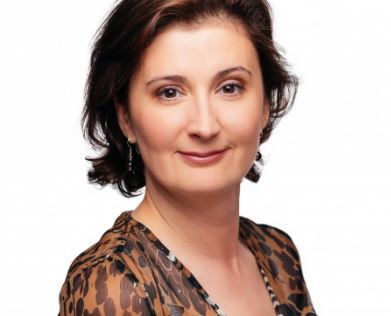
Read also:
- Rex Tillerson's visit to Kyiv: key things to know
- Three years after Euromaidan, what changed in Ukraine
- At the forefront of civil society: how Ukrainian volunteers serve their country
- Ukrainian civil society responded more readily to Putin’s invasion than the government
- Behind the scenes of civic society's battle with corruption in Ukraine
- Euromaidan was a “wake up call” for civil society in the regions of Ukraine
- Ukrainian anti-corruption NGO says new criminal investigation against them is state attack
- Smear campaign against Ukrainian anti-corruption NGO intensifies. Is the state involved?
- Anti-corruption activists create chronology of Ukrainian government attacks against them



